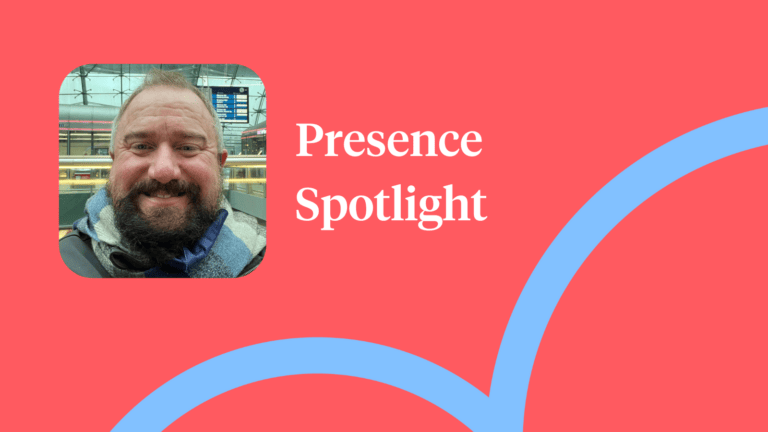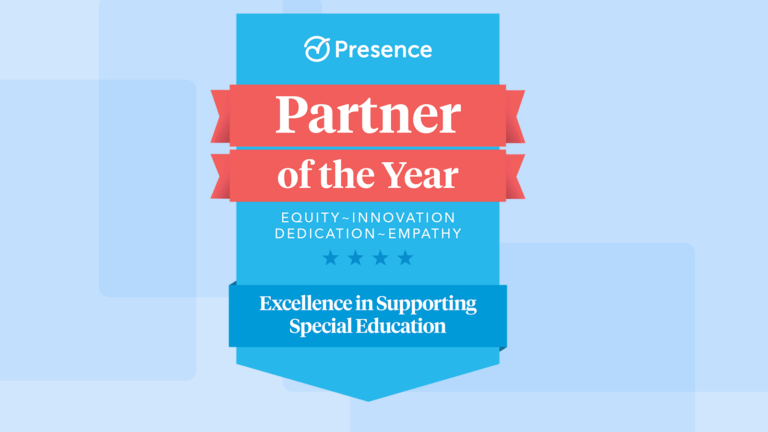

Practice Listening
Doug Shoumaker, MS, SSP, NCSP, is a school psychologist with 32 years of experience in the field. He’s currently working on his PhD in School Psychology at Texas Tech. He’s researching traumatic effects of the pandemic on school psychologists. Doug joined the Presence Clinical Community in the fall of 2021.
Please note: We did this interview with Doug Shoumaker shortly after the tragic school shooting at Robb Elementary School on May 24, 2022 in Uvalde, Texas.
Doug, let’s begin with a little background on your journey becoming a school psychologist…
I was born and raised in Louisiana and currently live in Dallas, Texas. I’m the youngest in my family—I have two sisters and one brother. I am currently working on my PhD in School Psychology and hopefully, I’ll be graduating from Texas Tech in December, 2022. I received my Bachelors in Psychology at a small private university in Lakeland, Florida. I went to LSU before I decided I needed to leave Louisiana for a little while. I love Florida so I decided to move there to finish my undergrad degree. I then became homesick and decided to return to Louisiana. That’s when I received my Masters in Applied Psychology and my Specialist in School Psychology from the University of Louisiana at Monroe. Along my journey as a school psychologist, I made the decision to pursue a Masters in Counseling. All I’m lacking is my internship and taking the LPC board exam. But since I’m in the process of getting my doctorate, I didn’t feel the need to continue with that second masters degree. I wanted to put all my energy into the PhD.
I’ve been in the field of school psychology for 32 years. I think I’ve investigated all avenues of psychology along the way. Most of my experience has been in the school system. I’ve explored the clinical side. I’ve worked in psychiatric hospitals in adult and adolescent units, including both acute and long-term care. I’ve worked in alcohol and drug addiction units, as well as residential facilities for individuals with intellectual disabilities. I realized that I like all of my holiday, spring, and summer breaks so I made a decision to return to the school system.
I’ve had a long stint of working in the school system, including working in four states—Louisiana, Florida, Alabama, and now Texas. I started out completing my internship in Louisiana, worked for close to 20 years, then relocated to Florida, then Alabama, and now in Texas. Like they say, everything is different in Texas than any other state. But my move to Texas opened up a lot of opportunities, and one of those opportunities for me was getting my PhD in school psychology. I feel like the grandpa of the cohort, but I’ve been able to maintain a very high GPA, as well as work full-time. I feel very accomplished that I’ve been able to keep up with all of the other students in their twenties and early thirties. That makes me very proud.
I’m very excited about the research that I’ve been involved in. I’ve always kept up with the research in school psychology, and I’ve always been very active in our national and state associations, especially in the states where I’ve worked. I’ve always been one that enjoys keeping up with the literature because I want to be sure that in my practice I’m always current on Best Practices. Being in the PhD program, I think, has really been a motivation for me in terms of the most recent research. Plus as I said, Texas is very different from any place I’ve ever worked, and I think that’s been good for me as well.
What is the topic of your current research for your dissertation?
I’m studying the effects of self-care habits of a school psychologist during the Covid-19 pandemic. Does self-care also affect self-efficacy and does that in turn, affect job satisfaction and job burnout?
We’re doing this interview in the wake of the tragic school shooting in Uvalde, Texas, and amidst a profound youth mental health crisis that started before COVID and was exacerbated by the pandemic. You’re on the front lines of supporting young people. What would you most like to share with other clinicians and school leaders reading this Spotlight?
Given all the recent tragedies and school violence, as well as the mental health issues that we’re seeing today among students and school psychologists/therapists, along with the increase of burnout rate and decrease in job satisfaction amongst clinicians and school psychologists and other related practitioners in our field—I’m led back to my dissertation topic.
I think the most important things I want to say to colleagues would be this: Learn how to practice self-care and teach yourself self-care. I think that’s very important. Teach self-care and demonstrate self-care, and when it comes to children, I think the most important thing that we can do and practice is listening.
So many times, we become so involved in our job and in our primary duties—assessments and carrying out the normal, everyday administrative type tasks that we’re assigned—that we can forget to actually sit down and listen to the needs of the students, and be sensitive to that, especially in this time, when mental health is such an issue.
In the middle of all these crises of school shootings, and a rise in domestic violence, most students just need to talk and have someone give them their undivided attention. Through research, we see that “talking“ is one of the best therapeutic methods we can utilize in order to process traumatic events. So I always recommend making time where we can sit down and just listen. So many times as adults, I think we want to talk because we’re the ones that have the most experience; we’re the ones that have the education, but I think there’s nothing more important than a listening ear.
So that’s what I try to do. I attempt to do less talking and more listening to my students; I don’t ask questions that involve the students answering or giving me a simple yes or no answer. I’m still actively listening, but I’m thinking of questions that I can ask them that spark conversation. Then I can sit back and ask them very simple questions that are going to elicit in-depth conversations with me. I attempt to create a space for them to self-disclose and engage in conversation that is going to be very therapeutic for them.



